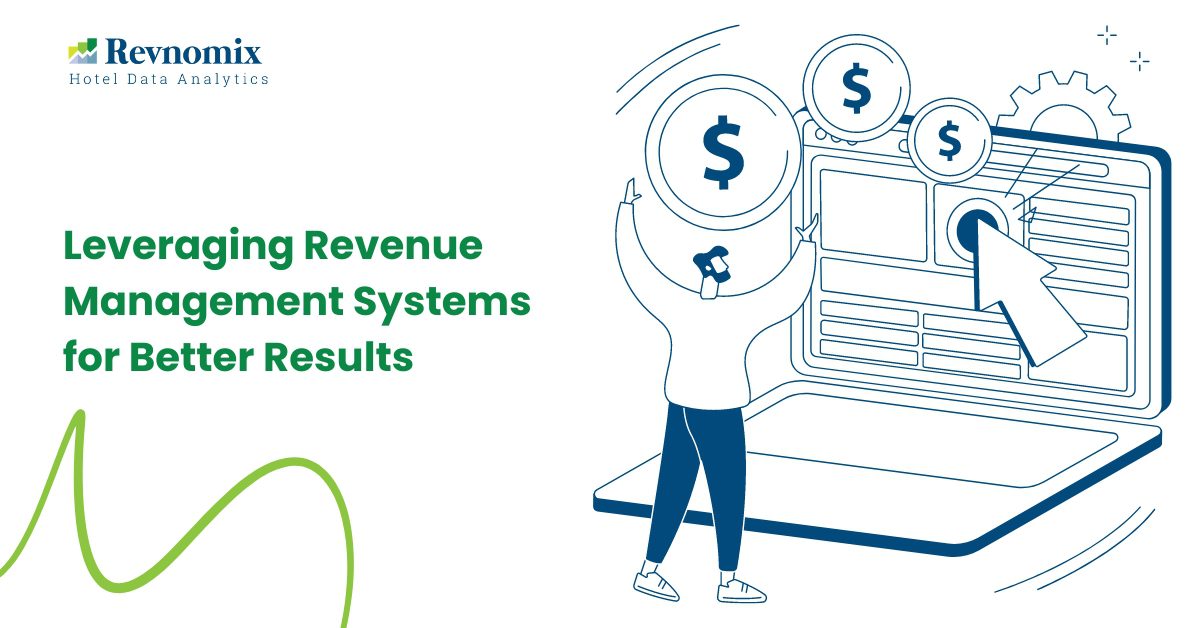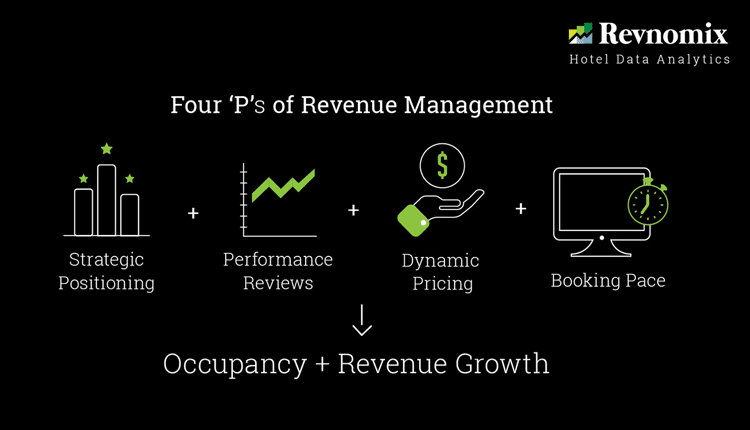In today’s fiercely competitive business environment, companies spanning diverse sectors are constantly on the lookout for innovative approaches to boost their earnings. One strategy that has garnered considerable attention in recent times is the adoption of Revenue Management Systems (RMS).
RevnomixRMS, a premier solution in this field, provides businesses with cutting-edge analytics and algorithms aimed at optimizing pricing, distribution, and inventory management. Through the utilization of RevnomixRMS, organizations can attain enhanced profitability and sustainable expansion. This article delves into the transformative capabilities of RMS and elucidates how businesses can harness these systems to achieve superior outcomes.
Unlocking the Potential of Revenue Management Systems at Revnomix
RevnomixRMS offers a comprehensive solution for businesses seeking to optimize revenue management strategies. By leveraging advanced technology and data analytics, RevnomixRMS empowers organizations to make informed decisions that drive profitability. This innovative system provides insights into pricing, demand forecasting, inventory management, and more, enabling businesses to maximize revenue and minimize costs effectively.
RevnomixRMS utilizes cutting-edge algorithms and machine learning techniques to analyze market trends, customer behavior, and competitor strategies, allowing companies to stay ahead in dynamic markets. With its user-friendly interface and customizable features, RevnomixRMS adapts to the unique needs of each business, ensuring seamless integration and efficient operation.
Whether in the hospitality industry, retail sector, or beyond, RevnomixRMS revolutionizes revenue management practices, offering unparalleled accuracy and scalability. By harnessing the power of data-driven decision-making, businesses can achieve sustainable growth and stay competitive in today’s ever-evolving market landscape.
Key aspects of revenue management systems include:
Data Analysis: RMS gathers and analyzes vast amounts of data from various sources, including historical sales data, market trends, and customer demographics, to identify patterns and insights.
Demand Forecasting: These systems employ sophisticated forecasting models to predict future demand for products or services, allowing businesses to adjust pricing strategies accordingly.
Pricing Optimization: RMS uses optimization algorithms to determine the most profitable pricing strategies based on demand, seasonality, competitor pricing, and other factors.
Inventory Management: Integrating with inventory management systems, RMS ensure that pricing decisions are aligned with inventory levels, preventing stockouts or excess inventory.
Dynamic Pricing: One of the key features of RMS is dynamic pricing, which allows businesses to adjust prices in real time based on changes in demand, competitor actions, or other market conditions.
Performance Monitoring: Revenue management systems provide performance metrics and analytics to evaluate the effectiveness of pricing strategies and identify areas for improvement.
Overall, revenue management systems play a vital role in helping businesses adapt to dynamic market conditions, maximize revenue, and stay competitive in today’s rapidly evolving business landscape.
Optimizing Pricing Strategies
One of the key functionalities of Revenue Management Systems is their ability to optimize pricing strategies based on real-time market dynamics. These systems analyze a multitude of factors, including demand patterns, seasonality, competitor pricing, and customer segmentation, to determine the most profitable price points for products or services. By dynamically adjusting prices in response to changes in demand and market conditions, businesses can maximize revenue while remaining competitive in the marketplace.
Enhancing Inventory Management
Effective inventory management is critical for businesses to meet customer demand while minimizing costs and maximizing profitability. Revenue Management Systems play a crucial role in optimizing inventory management by providing insights into demand patterns, inventory turnover rates, and stock replenishment needs. By aligning inventory levels with anticipated demand, businesses can avoid stockouts, reduce carrying costs, and maximize sales opportunities, ultimately driving higher revenue and profitability.
Personalizing the Customer Experience
In today’s era of personalized marketing, delivering tailored experiences to customers is paramount for driving customer loyalty and increasing revenue. Revenue Management Systems enable businesses to segment customers based on various attributes such as purchasing behavior, preferences, and demographics.
By leveraging these insights, businesses can customize pricing, promotions, and product offerings to cater to the unique needs and preferences of different customer segments, thereby enhancing the overall customer experience and driving higher revenue.
Forecasting and Predictive Analytics
Predicting future demand accurately is essential for businesses to make informed decisions regarding pricing, inventory, and resource allocation. Revenue Management Systems leverage advanced forecasting techniques and predictive analytics to anticipate demand patterns, identify emerging trends, and forecast revenue potential.
By analyzing historical data, market trends, and external factors such as economic indicators and seasonal variations, RMS provides businesses with valuable insights into future demand, enabling them to proactively adjust their strategies to capitalize on emerging opportunities and mitigate potential risks.
Measuring Performance and ROI
In order to gauge the effectiveness of their revenue management strategies, businesses need to continuously monitor and evaluate key performance metrics and return on investment (ROI). Revenue Management Systems provide businesses with robust analytics and reporting capabilities, allowing them to track revenue performance, pricing effectiveness, inventory turnover, and other relevant metrics in real-time. By analyzing these metrics, businesses can identify areas for improvement, optimize their revenue management strategies, and maximize their ROI.
Read More – The Role of Artificial Intelligence in Optimizing Revenue Management Processes
Integration and Scalability
The seamless integration of Revenue Management Systems with existing business processes and technologies is essential for ensuring their effectiveness and scalability. These systems should be able to integrate with various software applications such as CRM, ERP, and POS systems to streamline data flow and enable cross-functional collaboration.
Additionally, RMS should be scalable to accommodate the evolving needs of businesses as they grow and expand into new markets or industries. By investing in flexible and scalable RMS solutions, businesses can future-proof their revenue management capabilities and maintain a competitive edge in the marketplace.
In conclusion, Revenue Management Systems, such as RevnomixRMS, offer businesses a powerful toolkit for optimizing pricing, inventory management, and customer engagement strategies to maximize revenue and profitability. By leveraging advanced analytics, predictive modeling, and real-time insights, businesses can gain a competitive advantage, enhance the customer experience, and drive sustainable growth in today’s dynamic business environment.
Embracing Revenue Management Systems is not just a strategic imperative but a necessity for businesses looking to thrive in the increasingly complex and competitive marketplace.







